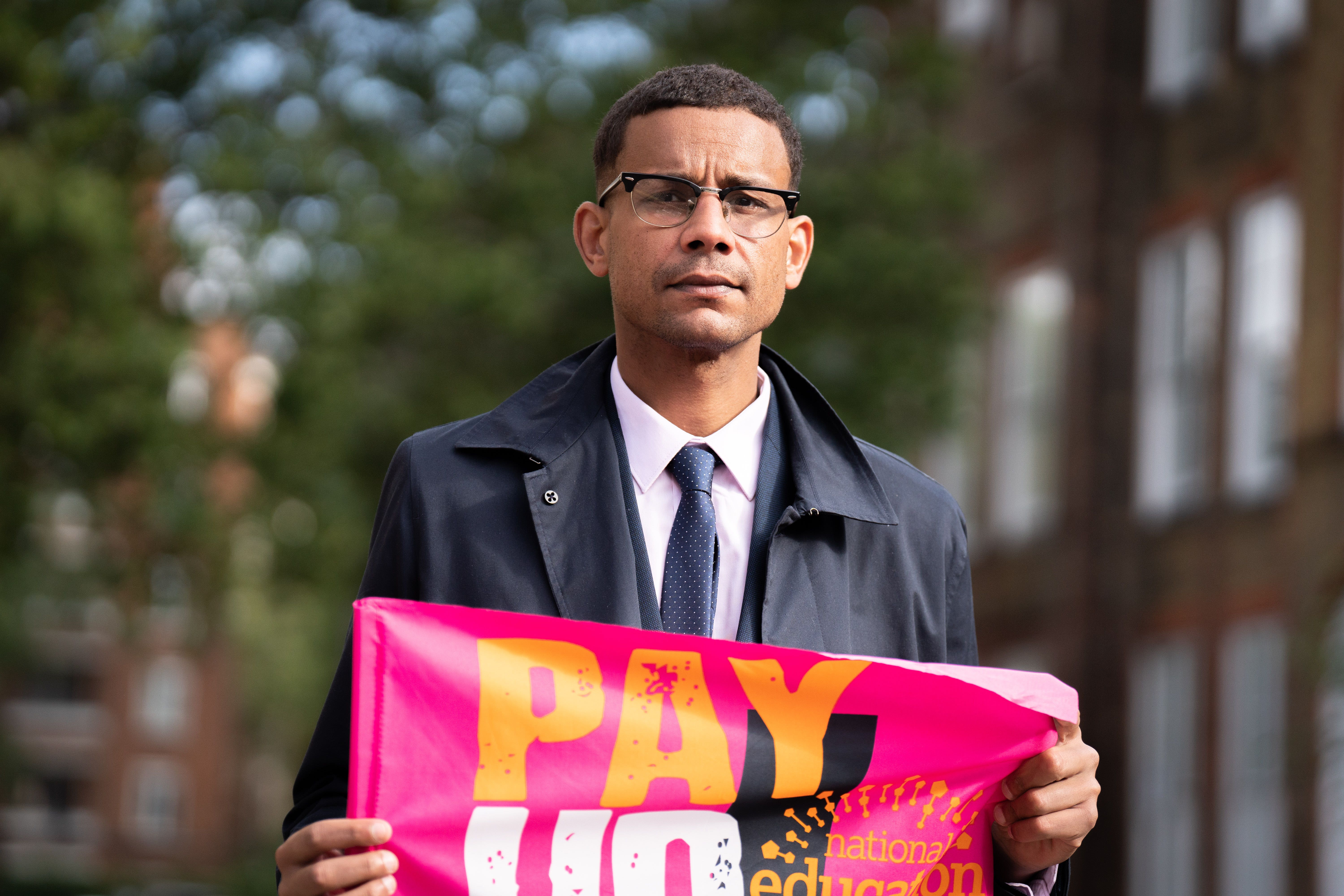Teaching union to launch indicative ballot of members over pay
Members of the National Education Union will be asked if they would be willing to take industrial action over the Government’s proposed pay offer.

Your support helps us to tell the story
From reproductive rights to climate change to Big Tech, The Independent is on the ground when the story is developing. Whether it's investigating the financials of Elon Musk's pro-Trump PAC or producing our latest documentary, 'The A Word', which shines a light on the American women fighting for reproductive rights, we know how important it is to parse out the facts from the messaging.
At such a critical moment in US history, we need reporters on the ground. Your donation allows us to keep sending journalists to speak to both sides of the story.
The Independent is trusted by Americans across the entire political spectrum. And unlike many other quality news outlets, we choose not to lock Americans out of our reporting and analysis with paywalls. We believe quality journalism should be available to everyone, paid for by those who can afford it.
Your support makes all the difference.The largest education union in the country will ask its members to vote on the Government’s recommendation of a 2.8% pay rise for teachers.
The National Education Union (NEU) will launch an indicative ballot of its members from March 1 until April 11 over the pay offer for teachers in England.
Members will be asked whether they would be willing to take industrial action if the Government does not commit to a significant and fully funded pay rise.
The current proposal of 2.8% is not sufficient to even start to address the crisis in recruitment and retention
Delegates at the NEU’s annual conference in mid-April could then decide to proceed to a formal ballot in the summer term if members back action.
Daniel Kebede, general secretary of the NEU, said the current proposal of 2.8% for 2025/26 is “not sufficient” to address teacher shortages.
It comes after the Department for Education (DfE) said a 2.8% rise would “maintain the competitiveness of teachers’ pay despite the challenging financial backdrop the Government is facing”.
In written evidence to the School Teachers’ Review Body (STRB) in December, the DfE said: “The Department’s view is that a 2.8% teacher pay award would be appropriate for 2025/26.”
The STRB has not yet made its formal recommendations for teacher pay in England for the next academic year.
At a meeting of the national executive of the NEU this week, the union agreed to proceed with a preliminary online ballot of teacher members in England.
The DfE has called the decision by the union “extraordinary”.
As we continue to tackle unacceptable levels of school absence after millions of school days lost through both the pandemic and recent industrial action, we call on unions not to put children's learning at risk and to put pupils' interests first
Downing Street urged teachers not to “put children’s learning at risk” by going on strike.
Mr Kebede said: “The current proposal of 2.8% is not sufficient to even start to address the crisis in recruitment and retention.
“The suggestion that an unfunded pay award can be paid for by making ‘efficiencies’ is an insult to a profession who have already endured 14 years of austerity.
“No teacher or leader will be able to identify efficiencies without cutting staff or resources or both.”
He added: “Thousands of teachers voted for the change that Labour promised for education. They promised to invest in education, to recruit 6,500 teachers and to value education and to secure the life chances of our children.
“We need to see their commitment in deeds as well as words.
“Sentiment alone will not fill the excessive teacher vacancies nor will it deliver the world-class education our children deserve.”
Teachers and headteachers in England received a fully funded 5.5% pay rise in September last year.
NEU members staged eight days of strike action in state schools in England in 2023 in a long-running pay dispute.
In July 2023, the Government agreed to implement the STRB’s recommendation of a 6.5% increase for teachers in England, and co-ordinated strike action by four unions was called off.
A DfE spokesperson said: “This is an extraordinary decision.
“In three years, teachers have had a combined pay increase of over 17%.
“As schools and families continue doing everything they can to improve attendance, and after the millions of school days lost through both the pandemic and recent industrial action, union leaderships need to think long and hard about whose interests they are putting first.
“For the government and the Education Secretary, it is always children who come first.”
Asked if the Government was worried about potential strike action by teachers, a Downing Street spokesman said: “As we continue to tackle unacceptable levels of school absence after millions of school days lost through both the pandemic and recent industrial action, we call on unions not to put children’s learning at risk and to put pupils’ interests first.
“We have been clear that future pay awards must be fair to both taxpayers and workers, especially when we are faced with unprecedented, inherited challenges, and the £22 billion black hole in the public finances.
“2.8% is above the OBR’s inflation forecast for this year, and in the last three years, teachers have had a combined pay increase of more than 17%.”